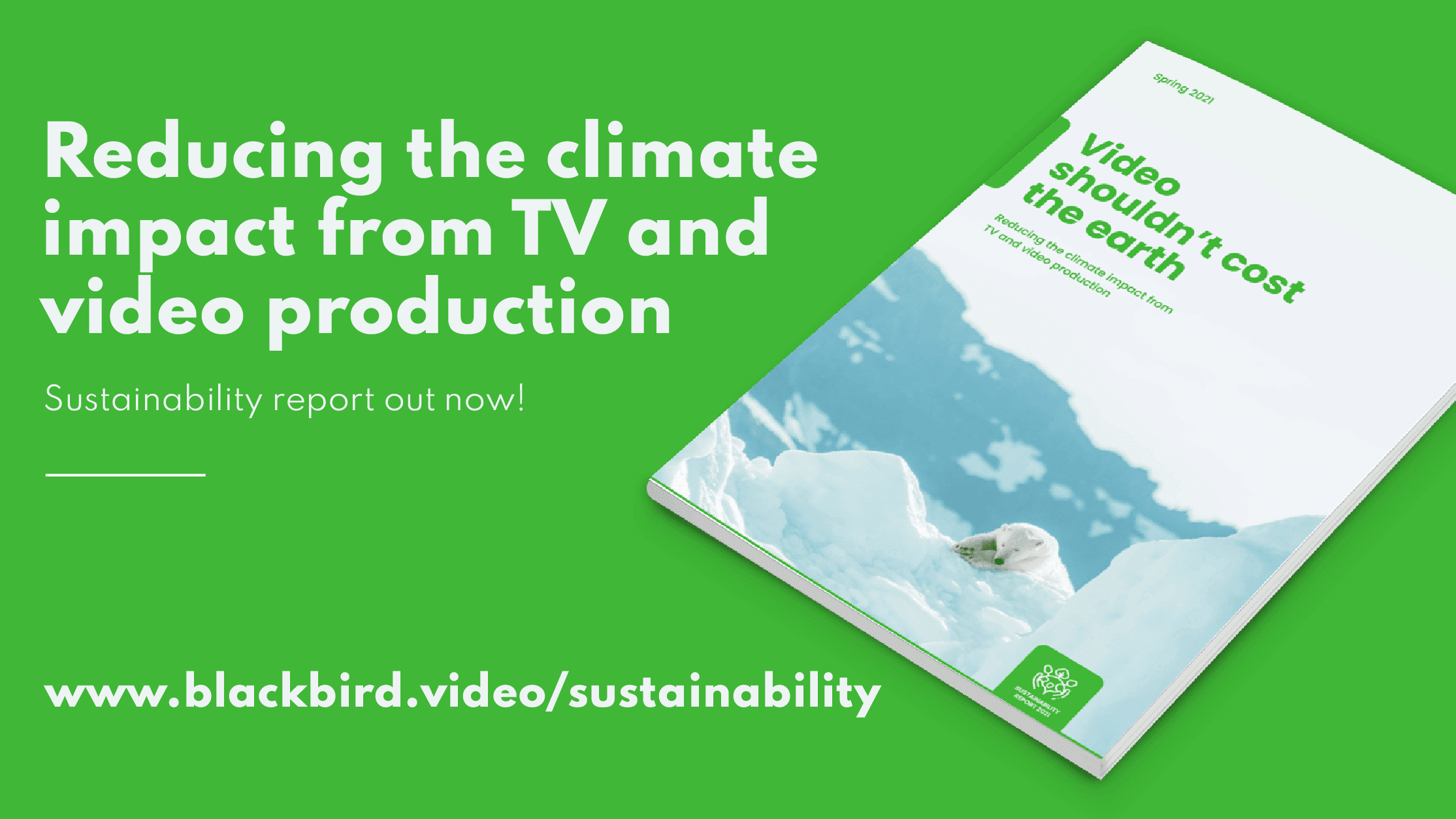Blackbird Details Video Industry Impact on Environment
New study outlines how companies can work to meet sustainability goals

LONDON—Blackbird is hoping to help turn the video industry green, and to do so has launched a carbon awareness study in collaboration with environmental management consultancy Green Element titled “Video Shouldn’t Cost the Earth.”
The study looks closely at how the video industry is impacting the environment and what steps can be taken to help meet sustainability goals.
Ian McDonough, CEO of Blackbird, cites the BAFTA-backed environmental organization Albert, which in its 2019-2020 report said that one hour of TV production generates 9.2 tons of CO2, which equates to nearly 28 square meters of lost sea ice.
A quick way for video companies to help negate this is by embracing existing cloud native technologies, the Blackbird and Green Element study details. This would reportedly help reduce emissions caused by production equipment, travel, physical network infrastructure, servers, equipment housing and data transfer of large media files.
PLUS: VITEC Pledges to Be Carbon Neutral by 2021
However, not all cloud-based technologies are carbon friendly, the study claims. It says that typical cloud-based solutions need extra hardware to connect to the cloud and output from it. Many solutions also use a virtual infrastructure within the cloud that consumes a significant amount of energy. Cloud-native solutions are said to mitigate these impacts.
The report shares details that over a two-week sporting event, Blackbird’s cloud-native professional video editing platform generated 91% less carbon emissions than on-premise editing systems and up to 84% less carbon emissions compared to cloud-based solutions.
Get the TV Tech Newsletter
The professional video industry's #1 source for news, trends and product and tech information. Sign up below.
“Through awareness, collaboration and commitment in the industry, we can make meaningful reduction in carbon emissions,” said McDonough. “If the technologies that exist today are leveraged correctly, it would result in a large, positive and immediate impact. A 25% reduction in carbon emissions from TV production by U.K. public service broadcasters alone would save over 200,000 square meters of sea ice per year. We owe it to future generations to act as leaders and collectively focus and prioritize cleaner video production that will benefit our environment.”
“Video Shouldn’t Cost the Earth” is available for download on Blackbird’s website.
